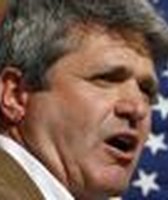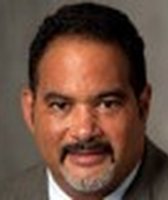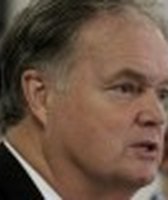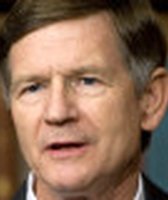Stand up for the facts!
Our only agenda is to publish the truth so you can be an informed participant in democracy.
We need your help.
I would like to contribute
Michael McCaul says he stopped requesting earmarks in 2008
In an e-mail newsletter, U.S. Rep. Michael McCaul, R-Austin, celebrated the defeat of an annual spending bill that Senate Republicans refused to support.
"Senate Majority Leader Harry Reid tried to pass a proposed omnibus budget bill with 6,714 earmarks worth $8.3 billion, but pulled it after Americans became outraged that Washington is not listening to their cries to stop pork barrel spending," McCaul said in the Dec. 20 e-mail. "I am proud that I stopped requesting earmarks in 2008 until the system becomes 100 percent transparent."
Republican lawmakers have lately been swearing off earmarks — funding for local projects that lawmakers slip into spending bills — so we wondered if McCaul's own hands have been pork-free since 2008.
First, we turned to databases of earmarks from fiscal 2008 to 2011 created by the nonpartisan Taxpayers for Common Sense, a group that is critical of earmarks. Prior to 2007, when the House tightened disclosure rules, lawmakers weren't required to attach their names to earmark requests.
According to the 2008 database, McCaul joined other lawmakers in securing 19 earmarks worth $19.96 million in 2007. Alone, McCaul sponsored five earmarks totaling $1.72 million. He requested $200,000 for the City of Austin and $900,000 for an Imaging Research Center in Austin, among others. But according to the databases and Taxpayers for Common Sense spokesman Steve Ellis, McCaul hasn't requested any earmarks since.
Mike Rosen, a spokesman for McCaul, passed along an April 2008 op-ed column by the congressman in which he said he was joining 35 colleagues in not "requesting earmarks until meaningful, common sense reforms are made."
The op-ed, published in the Houston Chronicle, suggests that each earmark be brought to the floor and voted on; currently, they're added to legislation and usually passed without debate.
In his 2008 op-ed, McCaul noted that while most earmarks "are legitimate, and submitted by politicians who earnestly want to help the largest number of people by finding meaningful and worthwhile requests ... the lack of transparency and accountability in the process have bloated already unprecedented government spending and led to well publicized abuses like the infamous Alaskan 'bridge to nowhere.' In 2005, Alaska's Congressional delegation secured about $230 million to build a bridge to an island of 50 people.
In a March press release responding to the Senate's defeat of a proposed earmark moratorium, McCaul reiterated his position, saying he wouldn't request earmarks until it's "100 percent transparent as to the sponsor and recipient and until each earmark is subject to an up and down vote on the House floor."
The New York Times reported in December that while some lawmakers have denounced earmarks, they haven't necessarily stopped seeking money for special projects. The Washington-based Citizens Against Government Waste obtained a letter to the Department of Education from Rep. Mark Kirk, R-Ill., asking the agency to release money "needed to support students and educational programs" in a local school district that later said it received about $1 million in stimulus aid, according to the Times.
Rosen told us that McCaul "routinely writes letters of support for entities" in his district that are "applying for federal competitive grants." Such agencies include the Department of Justice, Health and Human Services and the Department of Energy, Rosen said in an e-mail, "for projects that range in scope from alternative energy to law enforcement to health and domestic violence programs."
"The funding sought is already budgeted by each agency for eligible projects and the grants are awarded based on set criteria established by law," Rosen said.
Ellis told us that he wouldn't call that earmarking, because "the agency is still making the decision. When you have an earmark in a piece of legislation, it subverts the agency decision-making process."
Upshot: McCaul stopped requesting earmarks in spending bills as of 2008. That's True.
Our Sources
E-mail newsletter from Rep. Michael McCaul, Dec. 20, 2010
Interview with Steve Ellis, vice president, Taxpayers for Common Sense, Jan. 3, 2011
E-mail interview with Mike Rosen, communications director for Rep. Michael McCaul, Dec. 28, 2010
Austin American-Statesman, Congressman condemns projects in ads but used to seek them, Oct. 21, 2008
Austin American-Statesman, Even as they attack earmarks, Texas lawmakers tout projects, Feb. 23, 2008
Austin American-Statesman, House OKs lobbying, ethics bill; Democrats decry 'sham,' May 4, 2006
Austin American-Statesman, Behind closed doors, Congress' pet projects rise, Sept. 9, 2006
Austin American-Statesman, Lawmakers seek clarity, openness in spending, March 16, 2007
The Houston Chronicle, Amid re-election bit, McCaul vows to drop earmarks, March 24, 2010
The Houston Chronicle, Op-ed by Rep. Michael McCaul: Time for plain talk on earmarks, April 20, 2008
Project Vote Smart, Sept. 14, 2006, House speech by Rep. Michael McCaul: "Providing for earmarking reform in the House of Representatives"
The New York Times, Lawmakers finance pet projects without earmarks, Dec. 27, 2010
The New York Times, House tightens disclosure rules for pet projects, Jan. 6, 2007
Taxpayers for Common Sense 2008, 2009 and 2010 earmark databases, accessed Dec. 28, 2010
Taxpayers for Common Sense, FY2011 earmark request database, posted Dec. 7, 2010
Browse the Truth-O-Meter
More by
Michael McCaul says he stopped requesting earmarks in 2008
Support independent fact-checking.
Become a member!
In a world of wild talk and fake news, help us stand up for the facts.

























































